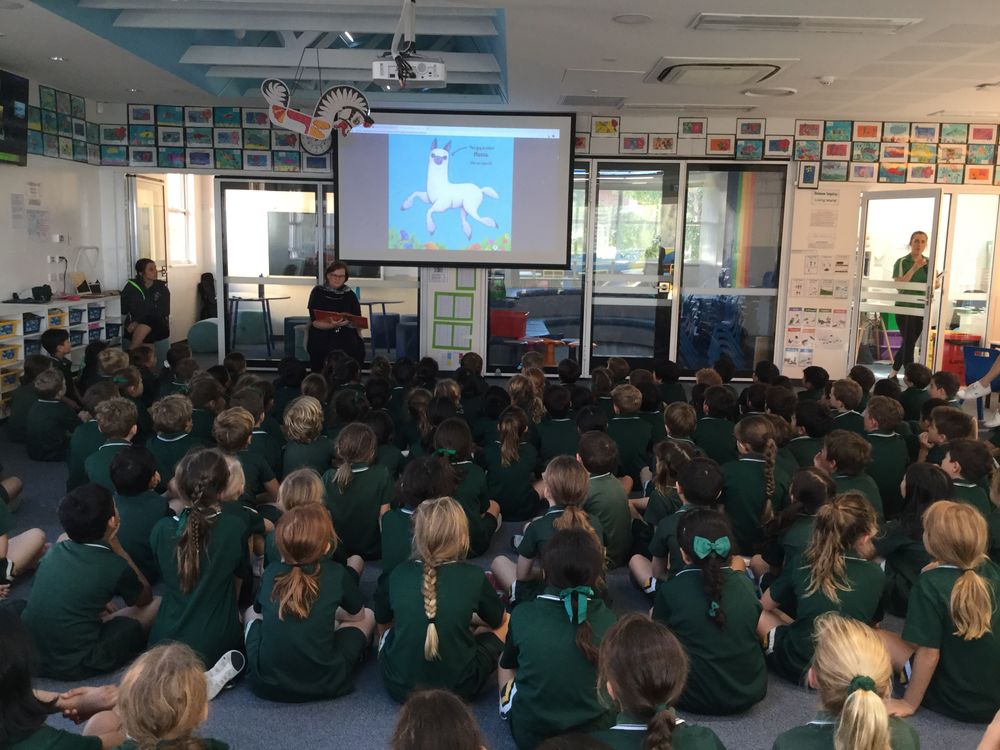What’s Your 2040?
According to climate scientists, unless we can reduce our consumption by at least 20%, we are likely to experience some serious climate trouble by the year 2040.
”You never change things by fighting the existing reality. To change something, build a new model that makes the existing model obsolete.” - Buckminster Fuller
This quote really resonated with the staff of Claremont College after they took the opportunity to watch a feature documentary called ‘2040’ in the Ritz Theatre last week. In this documentary, award-winning director Damon Gameau embarks on a journey to explore what the future could look like by the year 2040 if we simply embrace the best solutions that are actually already available in order to improve our planet.
On his journey, Gameau consulted experts around the world across areas as diverse as farming, aquaculture, civic design, transport, education and more. The solutions presented work towards strengthening communities, improving the quality of food and soil, embracing cheaper and cleaner energy and transport, plus restoring habitats and ecosystems.
Solution 1- Marine Regeneration
Our oceans absorb almost all of the excess heat in the atmosphere - about 90% of it - and this means they too are warming rapidly. They are also becoming more acidic because they absorb excess carbon dioxide. Ocean heating is causing mass coral bleaching and threatening marine ecosystems. The oceans are already too warm and are in need of an innovative solution. Gameau presents the idea that one incredible organism can change all of this - seaweed! Growing up to half a metre a day, seaweed removes carbon dioxide from the water, restoring the alkaline balance. It can draw down huge amounts of carbon from the atmosphere and help restore marine ecosystems.
Solution 2- Regenerative Agriculture
Intensive, modern farming practices rely on putting chemicals into the soil, which destroy the soil ecosystems. Without healthy soil, we reduce the amount of microbes and in turn the amount of carbon that can be drawn down into the ground. The UN predicts we have around 60 years of top soils left. We need to act now and we need to return to regenerative practices for our food, our soils, and our climate.
Solution 3 - Renewable Energy
Generating electricity accounts for almost half of all of our global emissions - mostly due to coal, oil and gas. Most people already know about renewable energy - that’s wind, solar and other practices. But, what you might not know is that these technologies not only produce cleaner energy, but are now cheaper too! The renewable energy revolution is already underway, with new models that combine localised generation with the latest in battery storage tech. But, some communities are going even further, with decentralised systems that remove any reliance on the big fossil fuel producers.
Solution 4- Educating Women and Girls
Every year, we humans consume the amount of resources that the world is able to replenish by August. That means for the rest of the year, our booming global population is taking away from future generations. Gameau proposes that empowering women and girls with education, access to reproductive health services and work opportunities can give them a better quality of life and have an enormous impact on the planet.
Solution 5 - Transport
By 2040 it's estimated that an extra 1 billion cars will join the 1.2 billion already occupying our roads. The environmental impact, plus the impact of the extra parking space required and the overcrowding in our cities, will be enormous. Researchers and academics can see a potential solution with the convergence of the ride-share and electric vehicle industries with autonomous vehicle technologies. This could see a drastic decrease in the number of cars on our roads and the parking spots required. This would open up our cities for more community spaces and affordable housing, as well as drastically reducing emissions.
What can we do right now and how can we inspire our students to take action?
Bring your child to see a FREE screening of 2040 this weekend (25th and 26th May) at any Palace Theatre around Sydney. Screenings of 2040 are the catalyst for people to come together to discuss what needs to be done locally and globally to mitigate climate change. It will also encourage our students to think about what they can do to combat the problem. Find out more by visiting the following website: https://www.palacecinemas.com.au/movies/2040/
NUDE FOOD DAYS ARE TUESDAYS
Please support Claremont’s Nude Food Day campaign and become a more responsible consumer of products and resources. In addition, whether it's being smarter about how we equip our homes or supporting companies that promote ethical and sustainable sourcing of materials, there are a plethora of ways we can meaningfully reduce our waste:
- Start a small veggie patch and participate in composting practices in your home;
- Reduce your transportation emissions and look for alternative ways to travel whenever you can. Take inspiration from ride-share idea presented in the documentary; and
- Join the 2040 action hub where people can learn about, contribute to, advocate for, and invest in regenerative solutions that improve the wellbeing of people, the planet and all living systems. Visit the following website to find out more about how you and your family can get involved: https://whatsyour2040.com/about/
Claremont staff members are feeling energised believe that every one of us can make a difference, and we feel that this is story that the next generation needs to aspire to, and to believe is possible. Let’s work together to create this change!












